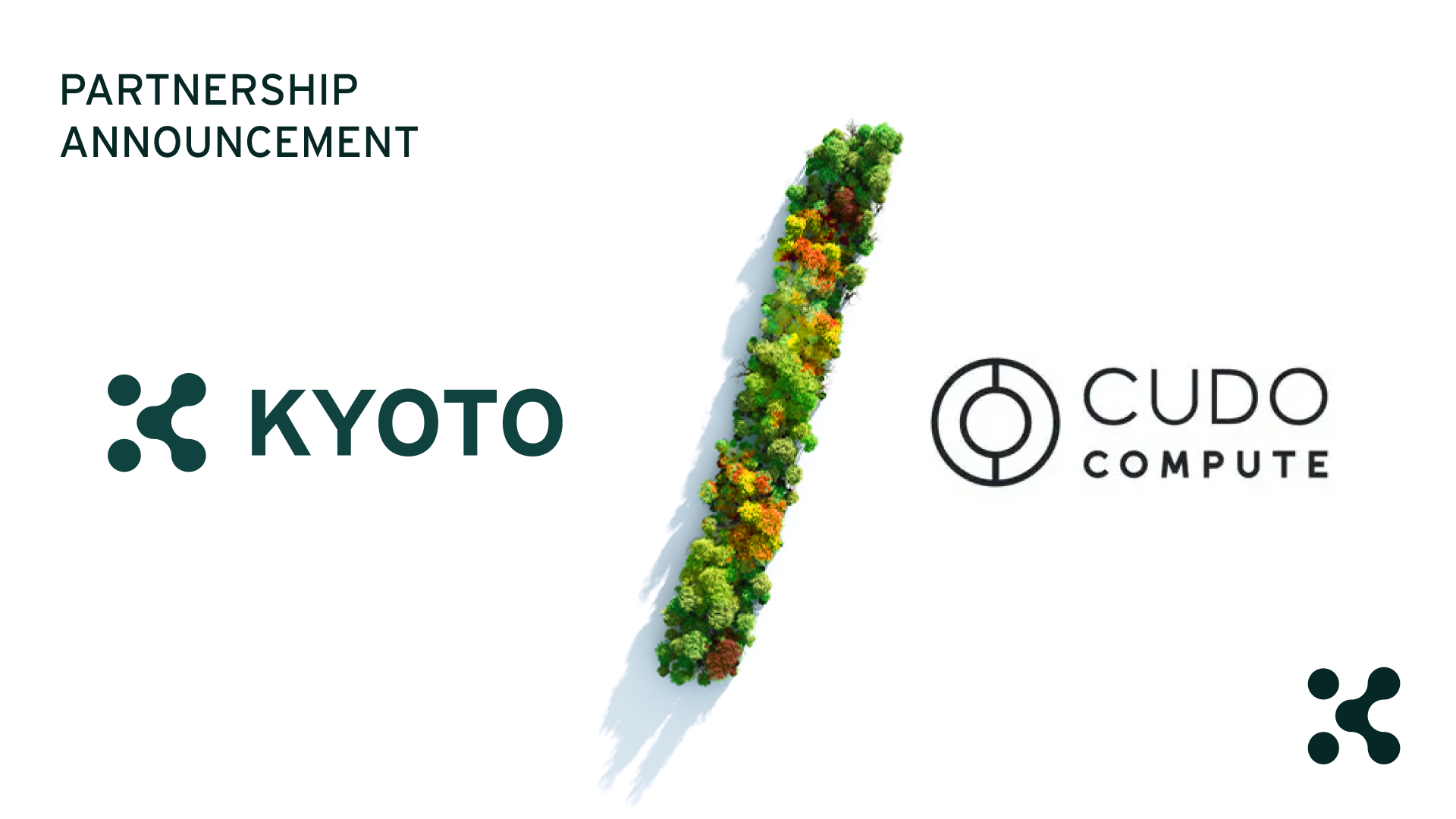Kyoto selects CUDO Compute to manage blockchain infrastructure, reiterating commitment to becoming 100% carbon-negative
KYOTO, the world’s first blockchain built to scale the voluntary carbon market, has expanded its collaboration with a distributed decentralised cloud network, CUDO Compute, as it looks to enhance efficiencies, drive sustainable business initiatives, and harness green computing power.

From the outset, Kyoto’s mission has been to create a powerful ecosystem that reduces waste and emissions while improving productivity. In contrast to the heavy reliance of up to 70% on centralised computing platforms by other blockchain networks, this strategic partnership will enable Kyoto to decentralise its network nodes completely. Eliminating dependence on a single data centre will improve business resilience, mitigate risk, and establish an open gateway for Kyoto's decentralisation efforts.
Empowering Kyoto’s sustainability ethos
This partnership will empower Kyoto to optimise underutilised computing power by leveraging CUDOS' distributed network of data centres and service providers across multiple geographies. Meanwhile, the venture will also create inroads to new markets and allow Kyoto’s blockchain to scale safely and securely, increasing demand levels from creators looking to build on its network.
Global industries increasingly recognise the commercial and environmental advantages of distributing workloads across multiple locations instead of relying on a centralised site. Kyoto's partnership with CUDO aligns with these shifting societal drivers around business consumption and the emergence of the gig economy model.
More computing for less carbon
As an organisation working towards net zero, eliminating the emissions from Kyoto’s IT operations is a significant part of the journey. Cloud computing is already a cleaner and more welcoming improvement than its original counterpart, as less hardware and running fewer workloads means less electricity is consumed. However, cloud data centres still need electricity to power them. That’s where greener, more efficient, and more sustainable cloud computing approach methods like those offered by Cudo come in.
Frank Morey, Co-Founder of Kyoto, expresses his enthusiasm for the partnership:
“Having partnered with CUDO Compute previously, as part of their bid to reduce their carbon footprint, this latest project is an essential step in our commercial relationship as it will accelerate our journey towards becoming a key driving force behind the Regenerative Finance community. As we grow, partnering with like-minded organisations that share our commitment to accelerating Web3 sustainability and spearheading the fight to preserve our planet – becomes ever more critical.
“CUDO’s ethos aligns with our goals, and we look forward to continuing our relationship with them as we scale our growing network.”
Gary Negus, Business Development Manager at Cudo Compute, adds:
“CUDO and Kyoto are equally committed to advancing the sustainable use of the planet's resources through eco-friendly Web3 initiatives. CUDO helps organisations more efficiently resource utilise compute infrastructure already resident in data centres around the planet. By accessing a wider pool of available infrastructure, our partners can select the ideal combination of function, price and location, reducing server requirements for a more economically and environmentally sustainable business experience with added benefits from carbon footprint reduction and waste heat reclamation.
“By partnering with CUDO, Kyoto is building a pioneering blockchain network resiliently spread across separate datacentres, spanning multiple continents without dependency on a single common datacentre operator. Kyoto is staying true to its commitment to decentralisation and sustainability without sacrificing commercial and operational value.
As featured in Cointelegraph.
For more information on the Kyoto Blockchain, explore our Greenpaper. Get the latest updates on our news page and subscribe to our monthly newsletter.
Join our community on Twitter, Discord, LinkedIn, and Telegram.



